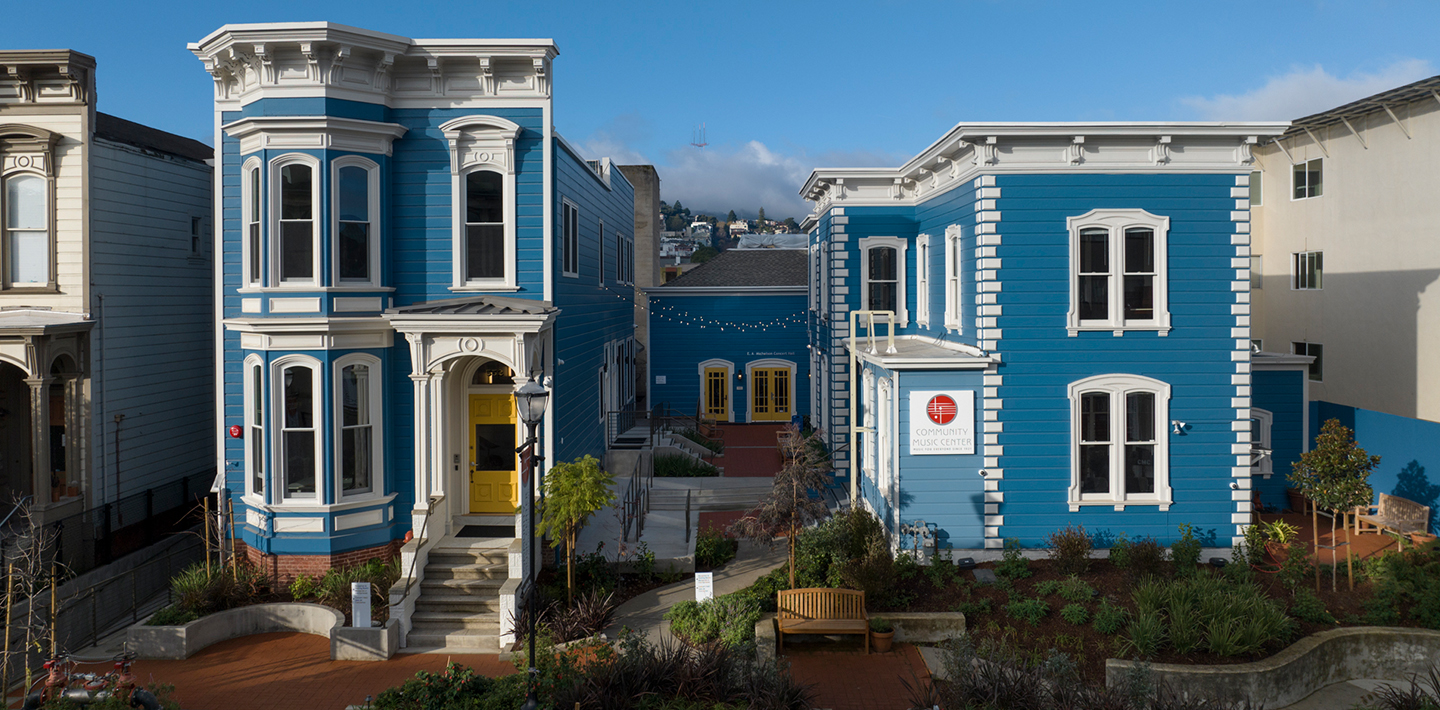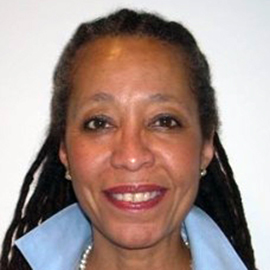CMC is thrilled to have María Cora on staff as our new Older Adult Choir Coordinator. She replaces CMC’s first Older Adult Choir Coordinator, Marissa Balonon-Rosen, who is now off at law school. María is no stranger to CMC’s Older Adult Choir Program. Before joining us, she worked as a Clinical Research Coordinator Associate with the UCSF Institute for Health & Aging on the Community of Voices study.
CMC has ten older adult choirs in partnership with senior centers throughout San Francisco. The choir program has grown as choirs have cycled out of the Community of Voices research study, which is a partnership between UCSF, Community Music Center and the Department of Aging and Adult Services.
Tell me what inspired you to keep working with choir members at CMC?
Because I’m as old as some of the singers in the choir, I can relate to them when it comes to our challenges and our sources of resilience.
I’m also a singer. I started singing in public in college, when I sang in a rock/jazz band. I can relate to the singers who feel anxious about performing on stage and those who feel lifted up by the applause. That experience is truly priceless.
I joined the Community of Voices team a few years ago because I agreed with the hypothesis of the study, that singing in community is beneficial to your health. The choirs were an excellent idea, and I worked diligently to help prove it. I got to see them get started, and I recruited in the different neighborhoods we work in. I got to know many of the participants because I conducted their individual assessments.
To me, the fact that the senior centers and members all wanted the choirs to continue speaks volumes. Of course, CMC has a great reputation in the community as well. I feel privileged to be part of it.
Has anything changed now that ten of the choirs have transitioned from the study to CMC’s program?
Not much, but I do get to see the conductors in their comfort zones after having led more than a year of rehearsals. What has changed is the way I work. I was part of a large team at UCSF and now I’m working as an individual on one of CMC’s many programs.
Tell me about your career before the Community of Voices Study.
I worked for the San Francisco Department of Public Health for 16 years. For a lot of that time, I was focused on adolescents, their parents, and schools. In the last four years I was there, I became the Coordinator of the Office of Women’s Health. I loved that work, and I only left due to a move to Miami. There, I was coordinating the Aqua Foundation for Women, and writing grants as their first paid staff. My partner and I missed our community in the Bay Area, and came back after three years away to a great big hug from the Bay community.
I’ve been in the Bay Area and part of the musical community here since 1981. I’m originally from Puerto Rico, but I’ve lived in California longer now, so I’m a “Calirican.” I came to the US and earned a BA from Harvard. From there, I went to film school in New York, lived in Arizona for a while, then moved to California.. I was interested in a salsa orchestra headed by the late timbalera Mala Maña (which translates to “bad habits” or “street savvy” in Spanish), “Orquestra Sabrosita,” and became their lead singer two weeks after I got here! I earned an MA in Ethnic Studies from San Francisco State University. I’m also a graduate of the Queer Women of Color Media Arts Project, and completed the short, “Negra Linda” in 2004.
Tell me about your musical life.
I am the lead vocalist and also play hand percussion in a band called “Azúcar Con Aché,” a female septet that has been playing Latin jazz and salsa since 2008. Some of us have been playing together for almost 25 years. If you’d like to hear us live, I invite you to come to our show at Rhythmix Cultural Works in Alameda this September 24.
How did you start singing and playing music?
If you grow up in Puerto Rico, it is generally assumed that all children should learn to sing, play music and dance. In elementary school, we were taught folkloric dance and music from Puerto Rico and the rest of Latin America. I come from a family with musicians in it, and a lot of our friends would bring live music to our home. Music was just part of growing up.
Do you have any thoughts or tips for older adults considering participating in a choir or studying at CMC?
I would definitely encourage them, especially if they haven’t explored music before. I guarantee that they will find a positive experience in it and that it will impact their life in ways they’ll be forever grateful for. It is joy-provoking and it balances out many other things in life. It’s just good for you! Grounded in community, your energy contributes to a global harmonious sound, replicated by people all over our planet. Come sing with us!



